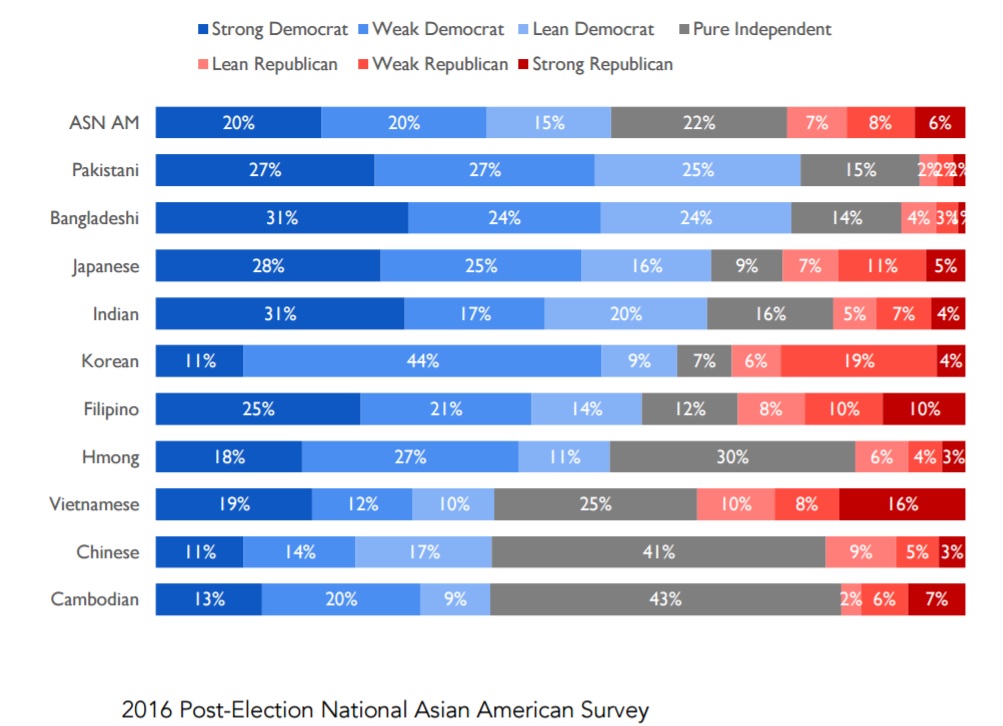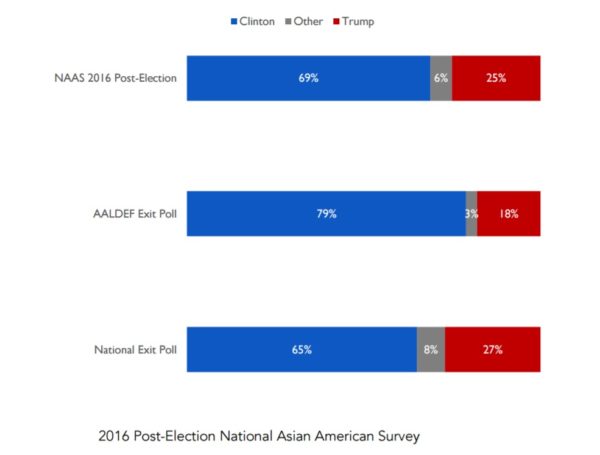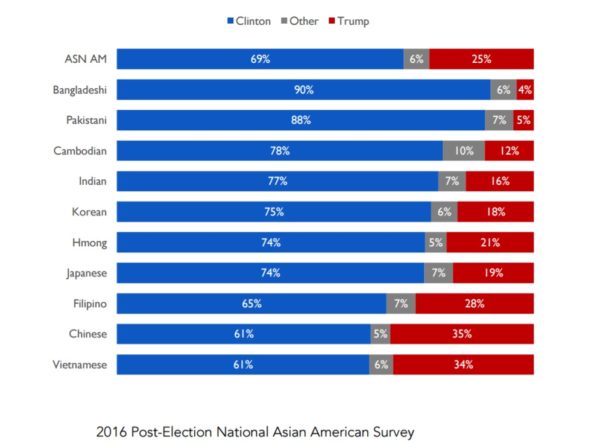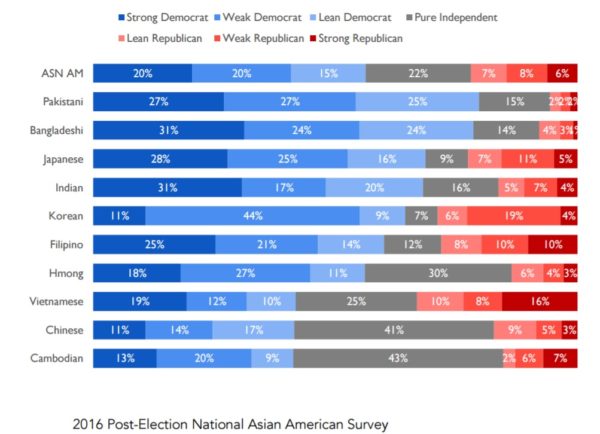Earlier this month, the National Asian American Survey (NAAS) finally released their 2016 Post-Election analysis regarding the presidential election and had these interesting observations:
- In 2016, Asian Americans posted their biggest gains ever in voting, with more than 1.1 million new voters. Between 2000 and 2012, the average increase in each presidential cycle was about 620,000 voters.
- When compared to the 2012 AAPI Post-Election Study, Clinton did about as well as Obama did among Asian American voters and won every segment of the Asian American vote
What was most interesting to see was the variation of the polling results from the other polls:
- The National Exit Poll showed that Clinton won roughly 65% of the Asian American vote (versus Trump with 27 percent).
- The Asian American Legal Defense and Education Fund (AALDEF) found that Clinton won 79% of the Asian Americans voted for Clinton (versus Trump with 18%)
Some of the differences in the polls was that
- Unlike the National Exit Polls, which were conducted only in English and Spanish, the 2016 NAAS was conducted in the same languages, plus 11 Asian languages (Bangla, Cambodian, Cantonese, Hindi, Hmong, Japanese, Korean, Mandarin, Tagalog, Vietnamese, and Urdu)
- Unlike the AALDEF exit poll of Asian Americans, which was conducted in high-density precincts with significant Asian American populations, the 2016 NAAS includes respondents from suburban areas as well as central cities.
What is also interesting is that the NAAS broke down the vote by ethnicity:
It doesn’t surprise me that Vietnamese Americans voted the most for Trump, given that they’ve been traditionally Republican – I think mostly due to the first generation’s strong anti-Communist leanings due to the Vietnam War, with South Vietnamese refugees fleeing Vietnam after the North Vietnamese won the civil war.
What is more interesting is party identification, by ethnicity, which shows a little more nuance:
As often observed, many Asian Americans are fairly politically independent or do not strongly identify themselves as “Strong” Democrats or Republicans, and thus are considered persuadables.
Given Trump’s reherotic during his presidential campaign, especially against immigrants, it’s no surprise that he lost the Asian American vote big time.











